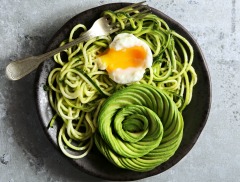Don't just meal plan... meal plan intelligently - with Meal Genius! Sign up for our free newsletter to get delicious recipes, sample meal plans and a whole lot more!
Brussels sprouts
Developed in Belgium several hundred years ago, and named for the country’s capital, Brussles sprouts are cruciferous vegetables and offshoots of cabbage.
Brussels sprouts are packed with disease-fighting nutrients including glucosinolates, indoles, vitamin C and fiber.
Estimated Glycemic Load=3
The Benefits
- Special diets: Autoimmune Paleo Diet, Elimination Diet, Gluten-Free Diet, Gluten-Free/Dairy-Free Diet, Grain-Free Diet, High Protein Diet, Low Acid Diet, Low Histamine Diet, Low Starch Diet, Paleo Diet (Light), Paleo Diet (Strict), Pescetarian Diet, Primal Diet, Vegetarian Diet, Whole Food
- Excellent Source of: VitaminC, VitaminK
- Good Source of: Fiber, VitaminA, Folate, Manganese
- Preferences: No Molds, No Citrus, No Pseudograins, No Coconut, No Fish, No Red Meat, No Pork, No Eggs, No Shellfish, No Gluten, No Nuts, No Seeds, No Soy, No Dairy, No Poultry, No Corn, No Yeast, No Peanuts, No Nightshade, No Legumes, No Grains, Low Carbohydrate, Low Cholesterol, Low Fat, Low Sodium, Low Sugars, Low Saturated Fat
Related Foods
Related Nutrients
Selecting and Storing
Look for a bright green color to indicate freshness; yellowed or wilted leaves are a sign of age or mishandling. Choose small, firm, compact sprouts with unblemished leaves. Do not wash or trim sprouts before storing them and don`t remove the outer leaves-they contain the most nutrients. Place loose sprouts in a perforated plastic bag. Fresh Brussels sprouts will keep for three to five days.









